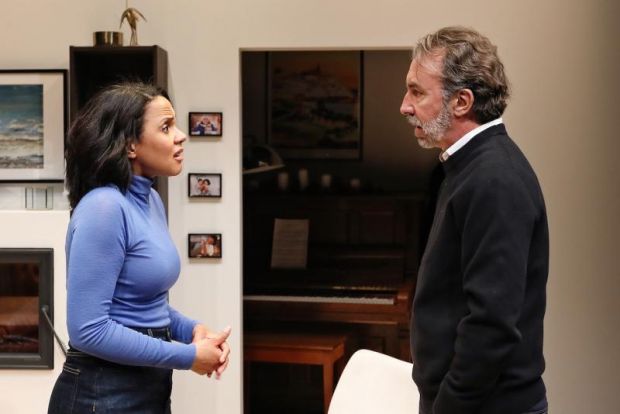A Doll’s House
Trying to modernise Ibsen’s great work is fraught with difficulties. The play ‘exploded like a bomb into contemporary life’, wrote an early biographer of the great writer. But what had seemed extraordinary and heart-stopping in 1879 – a wife leaving her husband and home without warning – is no longer extraordinary in 2022.
Nora Helmer (Chantelle Jamieson) shockingly considers abandoning her comfortable home and 'respectable' marriage for a completely uncertain future, sounding the opening blast of the sexual revolution. Adaptation to modern thinking and modern mores – in Copenhagen or Sydney – is, well, extremely difficult. Best to keep it in the 19th century.

But Joanna Murray-Smith elects to update the Helmer household to today. She tries hard to back the drama into the 21st century without recognising that events are very much of their time. Nowadays the concept of the independent woman is not at all as radical as it was in 1879.
In an effective small-scale ‘doll’s house’ setting (designer Veronique Benett), with lounge room centre and two other rooms visible, including a piano, we meet the Helmer household. Nora is loaded with boxed chocolates and Christmas presents (‘every one has been on credit’) that she scatters recklessly.

Husband Torvald (James Lugton, mainly concerned about his propriety and status) has been given a top job at the local bank and works late into the night from his home office. To this scene of hidden domestic disharmony comes Kristina (Lizzie Schebesta), an old school-friend of Nora’s, who is ready for new conquests.
Nora worries that her husband will find out about her dealings with another bank employee Krogstad (David Soncin), who has been affected by Torvald’s rise in status. And then there’s crippled George (Tim Walter) who’s been given a month to live (!) but, notwithstanding, is determined to tell Nora of his undying love for her.

All these can find a home in a depiction of 19th century manners, though hardly in the version of today that Murray-Smith and director Mark Kilmurry wish to convey.
The play takes a startling, radical turn when Nora realises that all is up and she must consider leaving her stifling marriage and making her own way in the world. One contemporary reviewer declared that ‘when Nora slammed the door... walls shook in a thousand homes. That’s the challenge put out by this great play.
Frank Hatherley
Editor’s Note. While leaving an abusive marriage no longer shocks on the same seismic social scale as in Ibsen’s day, tragically equally toxic relationships remain all too common in the 21st today. Thankfully, today, help is available. In Australia, you can call the 1800RESPECT, Lifeline or any of the state-based help lines.
Photographer: Prudence Upton
Subscribe to our E-Newsletter, buy our latest print edition or find a Performing Arts book at Book Nook.

